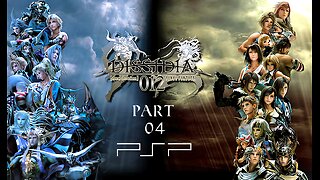Premium Only Content

#254 Keynesian Economics
The traditional Keynesian approach, often referred to as Keynesian economics, is an economic theory and policy framework that is based on the ideas of the British economist John Maynard Keynes. It emerged in the early to mid-20th century as a response to the economic challenges of the time, particularly the Great Depression. Keynesian economics had a significant influence on economic thought and government policy, and it remains a foundational framework in macroeconomics.
Keynesian economics is characterized by several key principles and policy recommendations:
Aggregate Demand: Keynesians emphasize the role of aggregate demand in determining the level of economic activity. They argue that fluctuations in aggregate demand can lead to recessions or periods of high unemployment. Government policy should be used to manage aggregate demand to achieve full employment and stable economic growth.
Role of Government: Keynesians advocate for an active role of government in the economy, particularly in times of economic downturns. They argue that government should use fiscal policy (government spending and taxation) to stimulate demand during economic slumps and to cool down an overheated economy during periods of inflation.
Fiscal Policy: One of the key tools of the traditional Keynesian approach is countercyclical fiscal policy. This means that the government increases spending and cuts taxes during recessions to boost demand and create jobs. Conversely, it reduces spending and raises taxes during periods of high inflation or economic overheating to cool down the economy.
The Multiplier Effect: Keynesians believe in the multiplier effect, which states that an initial increase in government spending or investment will lead to a larger overall increase in economic output. This is because the additional income generated by the initial spending will result in further spending, creating a ripple effect throughout the economy.
Liquidity Trap: Keynesians also introduced the concept of a liquidity trap, where interest rates are so low that conventional monetary policy (i.e., manipulating interest rates) becomes ineffective. In such situations, fiscal policy is seen as the primary tool for stimulating the economy.
Government Intervention: Beyond fiscal policy, Keynesians often support government intervention in other areas, such as regulating financial markets, providing unemployment benefits, and ensuring social safety nets to protect the vulnerable in society.
Short-Run Focus: Traditional Keynesian economics tends to focus on the short run, with the belief that the economy can experience prolonged periods of unemployment or inflation that require immediate policy intervention.
It's important to note that the traditional Keynesian approach has evolved over time, and different schools of thought within Keynesian economics have emerged, including New Keynesian economics. Critics of the traditional Keynesian approach argue that it may not be effective in all economic circumstances and can lead to government budget deficits and inflation if not managed carefully. Nevertheless, Keynesian economics continues to be a significant influence on economic policy discussions and has played a crucial role in shaping the modern understanding of macroeconomics.
www.antharas.co.uk/ companies website or top book distributors!
#BusinessStrategy
#Entrepreneurship
#Leadership
#Management
#Marketing
#Finance
#Startups
#Innovation
#Sales
#SmallBusiness
#CorporateCulture
#Productivity
#SelfDevelopment
#SuccessStories
#PersonalBranding
#Networking
#Negotiation
#BusinessEthics
#TimeManagement
#GrowthStrategies
#MarketAnalysis
#BusinessPlanning
#FinancialManagement
#HumanResources
#CustomerExperience
#DigitalTransformation
#Ecommerce
#SocialMediaMarketing
#BusinessCommunication
-
 8:04
8:04
AV
10 months ago#1149 Press release - Pension funds can fire up the UK economy
201 -
 LIVE
LIVE
VapinGamers
2 hours ago $0.01 earnedFathers Day Fortnite - Gonna Go Scream at the Kids to Get Off My Lawn - !rumbot Beta Version
89 watching -
 LIVE
LIVE
NeoX5
3 hours agoTime to Take Control! | Glitchless | Summer of Games Ep 10 | Rumble Gaming
74 watching -
 20:48
20:48
Stephen Gardner
1 day ago🚨You WON'T BELIEVE what just happened to Trump & George Soros!
90K674 -

Solar Dolphin
2 hours agoMinecraft: The scariest Horror Mod playthrough
541 -
 1:18:53
1:18:53
Sadix2112
2 days agoDissidia Duodecim Final Fantasy Episode 4 Heroic Dose
578 -
 LIVE
LIVE
Lofi Girl
2 years agolofi hip hop radio 📚 - beats to relax/study to
551 watching -
 2:55:03
2:55:03
BrancoFXDC
4 hours ago $3.68 earnedFather's Day Resurgence Rounds
17.5K1 -
 4:39:28
4:39:28
IcyFPS
5 hours agoFathers Day Splitgate BR w/ Arrowthorn! Lets go!!
19.8K -
 16:54
16:54
Forrest Galante
12 hours ago6 Animals You'll Be Glad Are Extinct
69.4K55